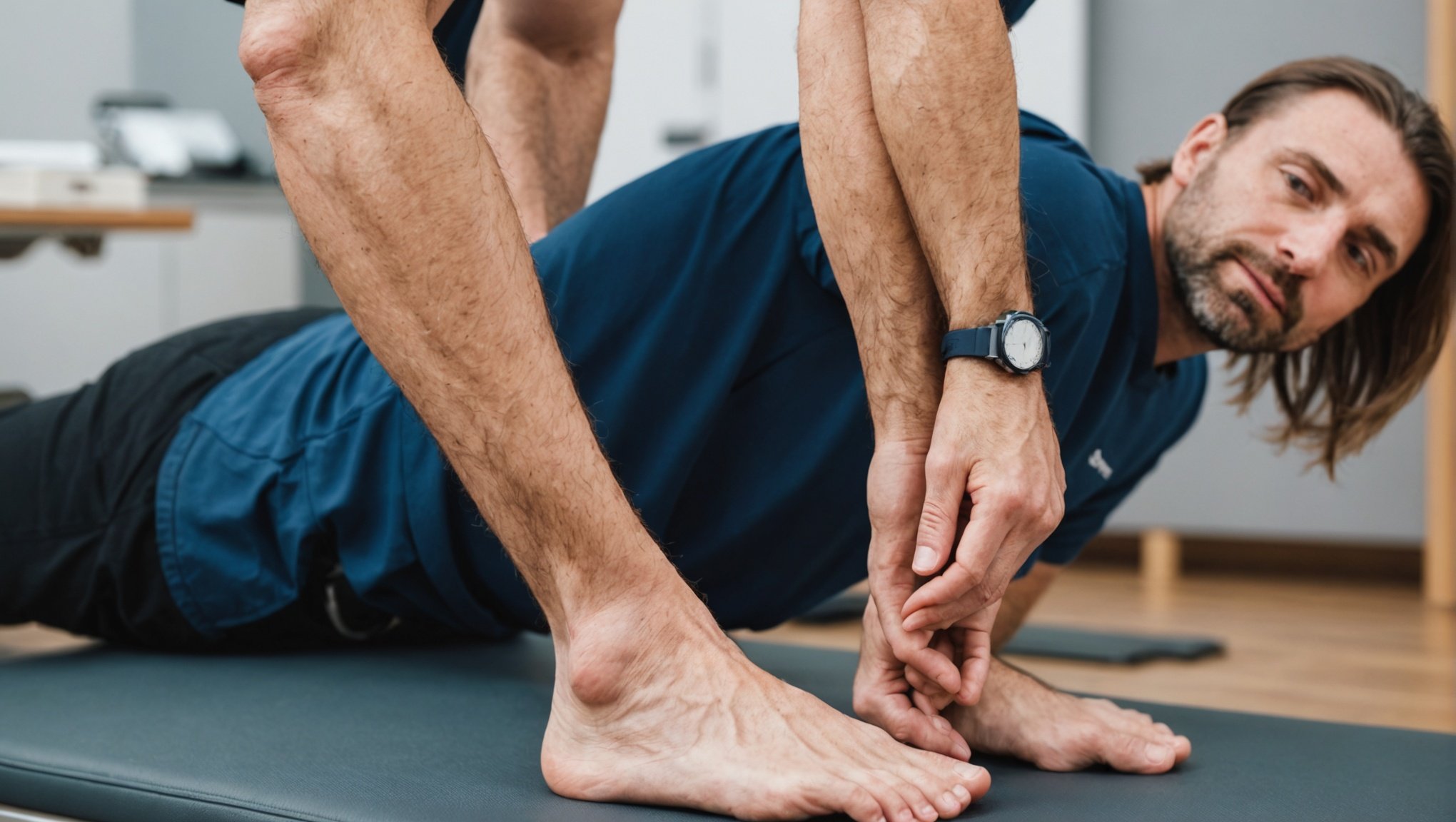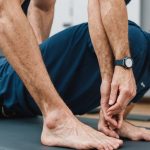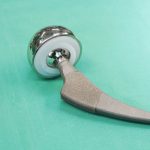Revolutionary Approaches: How UK Podiatrists Are Transforming Achilles Tendinitis Treatment
Understanding Achilles Tendinitis
Achilles tendinitis, a common condition affecting the lower limb, particularly the Achilles tendon, is a significant source of pain and discomfort for many individuals. This condition can arise from overuse, poor foot mechanics, or even sudden injuries, making it a frequent complaint among athletes and non-athletes alike. In the UK, podiatrists are at the forefront of innovative treatments, offering patients more effective and personalized care than ever before.
The Role of Podiatrists in Diagnosing Achilles Tendinitis
Podiatrists, such as Mr. David Gruhl, a highly experienced podiatrist specializing in podiatric sports medicine, play a crucial role in diagnosing and treating Achilles tendinitis. These specialists use advanced techniques like gait analysis and biomechanical assessments to identify the root causes of the condition. For instance, Mr. Gruhl’s approach involves a meticulous examination of the foot and ankle to understand how abnormalities in gait or foot mechanics might be contributing to the tendonitis.
Also read : Exploring Innovative Imaging Methods for Early-Stage Glaucoma Diagnosis by UK Ophthalmologists
Advanced Treatment Methods
UK podiatrists are embracing a range of revolutionary approaches to treat Achilles tendinitis, moving beyond traditional methods.
Custom Orthotics and Foot Orthoses
One of the key treatments involves the use of custom orthotics and foot orthoses. These are tailored to the individual’s foot shape and gait patterns to reduce stress on the Achilles tendon. Custom orthotics can help in redistributing the pressure and aligning the foot properly, thereby alleviating the strain on the tendon. For example, Mr. Gruhl creates custom orthotics that are designed to address specific biomechanical issues, providing significant relief to patients suffering from Achilles tendinitis.
Additional reading : Optimizing Dental Implant Design: Strategies for UK Prosthodontists to Boost Osseointegration Success
Shockwave Therapy and Injections
Shockwave therapy is another innovative method being used by UK podiatrists. This non-invasive treatment involves the application of high-energy shockwaves to the affected area to stimulate healing and reduce pain. Additionally, corticosteroid and hyaluronic acid injections are used to reduce inflammation and promote tendon repair. Mr. Gruhl, with his expertise in administering these treatments, has seen significant improvements in his patients’ conditions.
Comprehensive Care Plans
Effective treatment of Achilles tendinitis often requires a comprehensive care plan that includes multiple components.
Strength and Conditioning Programs
Podiatrists often recommend strength and conditioning programs to strengthen the muscles around the Achilles tendon. These programs are designed to improve the overall foot and ankle stability, reducing the risk of further injury. For instance, Mr. Gruhl advises his patients on specific exercises and training plans that are tailored to their needs and goals, whether they are amateur athletes or individuals looking to return to daily activities without pain.
RICE Method and Rest
The RICE method (Rest, Ice, Compression, and Elevation) remains a cornerstone in the initial treatment of Achilles tendinitis. This method helps in reducing inflammation and pain in the acute phase of the injury. Podiatrists emphasize the importance of rest and proper recovery techniques to allow the tendon to heal properly.
Preventive Measures and Foot Care
Prevention is a critical aspect of managing Achilles tendinitis, and UK podiatrists are keen on educating their patients about proper foot care.
Proper Footwear
Choosing the right shoes is essential in preventing Achilles tendinitis. Shoes with adequate arch support and cushioning can significantly reduce the stress on the Achilles tendon. Podiatrists recommend shoes that are designed for specific activities, such as running shoes for runners, to ensure optimal support and comfort.
Regular Check-ups and Gait Analysis
Regular check-ups with a podiatrist can help in identifying potential issues before they become severe. Gait analysis, a tool used by many podiatrists, helps in detecting any abnormalities in the way a person walks or runs, which can be corrected with custom orthotics or other interventions.
Practical Insights and Actionable Advice
Here are some practical tips and advice for managing Achilles tendinitis:
Tips for Managing Achilles Tendinitis
- Wear Proper Footwear: Ensure your shoes provide adequate support and cushioning.
- Stretch Regularly: Regular stretching can help in maintaining flexibility and reducing tension on the Achilles tendon.
- Use Custom Orthotics: Custom orthotics can help in redistributing pressure and aligning the foot properly.
- Avoid Overuse: Gradually increase your activity levels to avoid overuse injuries.
- Maintain a Healthy Weight: Excess weight can increase the stress on the Achilles tendon.
When to Seek Professional Help
- Persistent Pain: If you experience persistent pain in the heel or lower calf area.
- Swollen or Red Skin: If the skin around the Achilles tendon is swollen or red.
- Difficulty Walking: If you find it difficult to walk or stand due to pain.
Real-Life Examples and Success Stories
Many patients have benefited from the innovative approaches of UK podiatrists.
Case Study: Mr. David Gruhl’s Patient
One of Mr. Gruhl’s patients, an amateur athlete, had been suffering from chronic Achilles tendinitis. After a thorough gait analysis and biomechanical assessment, Mr. Gruhl created custom orthotics and prescribed a strength and conditioning program. The patient reported significant improvement in just a few weeks and was able to return to running without pain. Here’s what the patient had to say:
“David very much understood my goals as an amateur athlete and gave me a training plan to enable me to return to running in a safe and mindful way, which is working perfectly for me. I would not hesitate to recommend him.”
Comparative Analysis of Treatment Methods
Here is a comparative table of some of the treatment methods used by UK podiatrists for Achilles tendinitis:
| Treatment Method | Description | Benefits | Potential Drawbacks |
|---|---|---|---|
| Custom Orthotics | Tailored to individual foot shape and gait | Reduces stress on Achilles tendon, provides long-term relief | May require multiple visits for adjustments |
| Shockwave Therapy | High-energy shockwaves to stimulate healing | Non-invasive, promotes tendon repair | May cause temporary discomfort |
| Corticosteroid Injections | Reduces inflammation and pain | Quick relief from pain and inflammation | May have side effects, not suitable for long-term use |
| Strength and Conditioning Programs | Exercises to strengthen muscles around the tendon | Improves overall foot and ankle stability | Requires consistent effort and time commitment |
| RICE Method | Rest, Ice, Compression, Elevation for acute injuries | Reduces inflammation and pain | May not address underlying biomechanical issues |
Achilles tendinitis is a complex condition that requires a multifaceted approach for effective treatment. UK podiatrists, with their advanced training and innovative methods, are revolutionizing the way this condition is managed. From custom orthotics and shockwave therapy to comprehensive care plans and preventive measures, patients now have a range of options to alleviate their pain and return to their normal activities swiftly.
If you are suffering from Achilles tendinitis, it is crucial to seek professional help from a qualified podiatrist. By understanding the root causes of your condition and implementing the right treatment plan, you can ensure a swift and effective recovery.
Book an Appointment Today
Don’t let Achilles tendinitis hold you back. Book an appointment with a UK podiatrist today and take the first step towards a pain-free life. Whether you are an athlete or simply looking to improve your foot health, the right care can make all the difference. Remember, proper foot care is essential for overall well-being, and with the right treatment, you can enjoy healthy, happy feet for years to come.
















